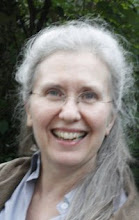 Surface-hippies usually follow their stay at Apollo Hospital with another week of recuperation at a top-rated beach resort on the Bay of Bengal, about an hour's drive from the hospital. But those resorts have been completely booked.
Surface-hippies usually follow their stay at Apollo Hospital with another week of recuperation at a top-rated beach resort on the Bay of Bengal, about an hour's drive from the hospital. But those resorts have been completely booked.Not to worry! We have met new friends who say it is a blessing in disguise, for they can find us less expensive accommodations farther south, where we can visit their projects along the Palar River.
On January 23rd, we head down the well-paved coastal road.

Traffic still is scarey.

We settle into an oceanside cottage at the Shelter Beach Resort on the East Coast Road, Vada Nemmeli, Kanchipuram.

Stunted palms on the beach remind us of the terror that struck just after Christmas two years ago in 2004, when the ocean mysteriously receded, gathered its forces, and struck like a wall of fury.

Finally new fronds are beginning to sprout inside the old ones, bruised and broken.

(Little do we realize that, half a world away, another new frond, our granddaughter, Sofia Kathryn West, is preparing her own grand entrance!)

Diligent as always, Phil sets out to find water that is safely bottled and sealed. While searching for a shop on the main road, he passes a school.
He is strange-looking with his pale skin and camera, and these are very observant children.

Laughter is a universal language.

On the 24th (Sofie's birthday forever after) Phil goes with our friend Vasantha for an inspiring introduction to GUIDE, which we will tell you about in our next posting.
I stay confined to our cottage, unable to make our phone work. Nor can I get online. All I want to do is sleep, read Indian newspapers and sleep some more. My body is healing.

When I sit on the porch, a young man who works here comes over to practice his English. He teaches me words in Tamil. He says his God-name is Saran, and I should call him Kailash.

Smart and personable, Kailash is earning his diploma at the Indian Institute of Catering Technology and Hotel Management at Thanjavur. Throughout the week he appears at our door to take our orders and help us understand Indian culture.
Soon he hopes to visit Sweden, where a prior guest has invited him to further his studies. Like so many Indians, Saran Kailash has big dreams. He is eager to see the world.
On our porch, Phil and I laugh as crows compete for lumps of sugar from breakfast trays, and do their victory dance.

Indian crows proliferate here and inspire good writers to tell stories. Check this out when you want to learn more about them:
http://www.author-me.com/fict02/crowtalk.htm

We appreciate the beauty and strength of coconut palm trees that flourished here since pre-historic times.
What perfect pods for carrying life through tumultuous oceans to reproduce on distant shores! (Have you ever seen a tropical island without a palm tree?!)

Indians thrive on coconut water (perfectly packaged and sealed antioxidants with medicinal power). They crack the pods to eat the meat, then carve the pods or turn them into bowls and ladles.

And look at those fronds--a natural shelter!

Woven fronds make walls and rooves that last a year or two.

From our window, we can see the women who work on the gardens . . .

often under the boss' watchful eye. (This body language makes me worry for her. She and I often smile at each other and nod, but I cannot speak Tamil to get acquainted.)

Sometimes the women haul big plastic garbage bags of dead palm fronds to the beach and burn them. Ocean breezes carry the smoke to our cottage, where it chokes us. Why?

Why not bury the fronds instead? Why not feed the soil? Why not use them to fertilize the evergreen seedlings that the women water every day? Leaders here struggle to teach environmental principles.

But India also has much to teach us about environmental principles. For example, Indian showers generally have a collection of buckets, whether in a home, a hospital, a beach resort,

. . . or a 4-star hotel. In India we learn to use water much more sparingly.

The bath mat reminds us that sometimes, in the face of unrelenting climate, all you can do is laugh.

On January 26th, a man comes to our porch. He tells us this is a national holiday and offers us two wrapped sweets.
Indians won their independence from Great Britain sixty years ago on August 15, 1947. Their Constitution took effect January 26, 1950.
Today is their 58th Republic Day! India's tricolor flies on flagpoles everywhere.

On the beach, vacationers walk in the surf. Some talk on cell phones.

(And bourgeois me--I dreamed I walked by the Indian Ocean in my TEDs!)

Indians play catch

. . . and volleyball

. . . and cricket (having kept some parts of British culture).

They pose for pictures.

Here it is easy to tell the difference between the privileged and the poor,

who work unacknowledged in the margins.
Just beyond the beach where people play, we see those who could never afford to stay at this resort and who get no vacation.

We watch the fisher people and realize how dangerous their work is.

Along the road we pass survivors of the tsunami, still living as refugees two years later on government land with nowhere to move.

Wealthy developers are buying these coastal properties. What can poor people who have lost their homes do about that?
